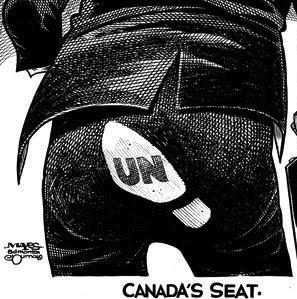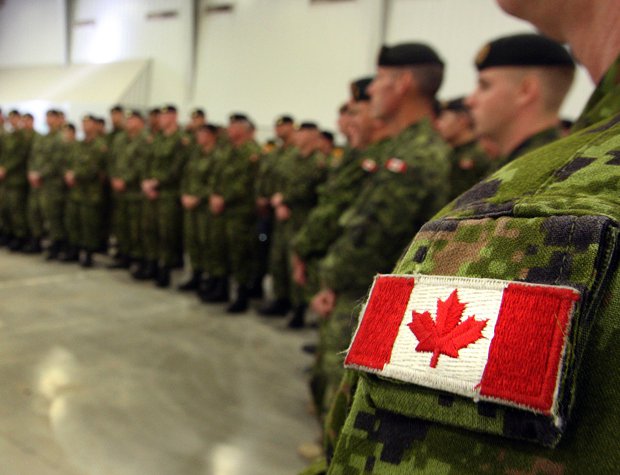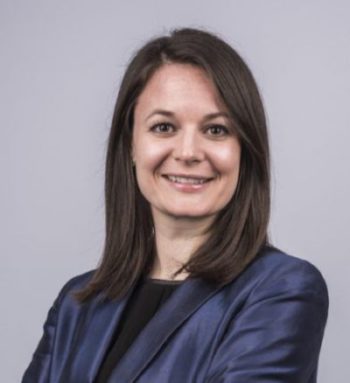“Canada’s principled foreign policy is not for sale for a Security Council seat,” Foreign Minister John Baird offered last week. He was attempting to preempt speculation regarding the upcoming election for Security Council seats, the last of which Canada lost to Portugal and Germany in 2010. He is wrong.
This is not the first time that Baird has made such pronouncements. The minister’s comments echo the ones he made in 2011. The first ever failure of Canada to secure one of the rotating seats on the Security Council does not belong to Baird, however belligerent he has been on the point since; that dubious honour belongs to Canada’s now-current Ambassador to France, Lawrence Cannon. With that said, however, since even before Baird took office as head of Canada’s foreign engagement he has had a shaky relationship with multilateral institutions, both in his position as Canada’s chief climate negotiator and once he assumed the leadership of the Department of Foreign affairs and International Trade.
Whether or not we agree with John Baird’s particular approach to Canadian foreign policy, it is clear that he is passionate on the subject. When referring to the abuses against women and homosexuals in some countries, he has been resolute in his language on these subjects. Furthermore, both Baird and the Prime Minister believe that Canada’s comments on religious, women’s, and sexual freedom have affected the country’s international reputation. It has been these principled stands, according to the federal government, that have halted Canadian foreign policy at various points, particularly in the Security Council election in 2010. Others disagree.
[captionpix align=”left” theme=”elegant” width=”300″ imgsrc=”http://www.thestar.com/content/dam/thestar/news/canada/2012/12/04/tim_harper_stephen_harpers_lightning_quick_foreign_policy_overhaul/johnbaird.jpeg.size.xxlarge.letterbox.jpeg” captiontext=”Baird speaks to the UN General Assemply, maintaining that Canada will not support the Observer status of Palestine from ‘Entity’ to ‘Non-Member state’.”]
David Frum at the National Post had a more thoughtful diagnosis as to Canada’s failure to gain a seat: bloc voting. Each of the rotating seats in the Security Council is assigned to a particular regional area, in which candidates may be proposed by the whole of the region and then voted on by the General Assembly. Africa, Asia, and Latin American and the Caribbean are dutiful in doing this in order to prevent vote-splitting in their regions. The exception to this is the Western European and Others seat, which Canada contests. The European Union unfailingly caucuses, like the other regions, to nominate its members for the position. This is why Portugal and Germany were successful in 2010 and one of the reasons why Canada would likely face trouble again in 2014. What Frum fails to note is that the EU does this not only for the purposes of its own self-aggrandizement, but also to promote a foreign policy that is coherent and congruent with the interests and the perspective of the larger Union. Its failure to see a place for Canada showcases its belief that Canada’s foreign policy is no longer spiritually or ideologically linked with its own, at least in certain respects.
It is clear that Canadian foreign policy as of late has made it unpopular with a number of its international partners. The recent thrust of Canadian foreign policy has been disengagement from or disregard for international environmental negotiations, including the recent pull-out from the UN Convention on Desertification, unflagging and often uncritical support for Israel in the Middle East, and decreased aid for a number of previous recipients. This has made Canada unpopular with many former and current partners, to say the least.
Within their logic of ‘principled’ stands on various issues, Harper and Baird seem to have accepted the unpopularity that their opinions bring them; they are not going to change what they are saying. If, however, they want their ideas to be adopted, or at the very least listened to, then they should change how they argue for them. Ignoring the Security Council is unproductive to this end. Regardless of its practical power, the prestige of the UNSC is unrivaled; the continued petitioning of emergent powers like India and Brazil for permanent seats proves this conclusively. Even with its current policies and attitude, however, not seeking the Security Council seat in 2014 doesn’t just show that Canada is uninterested in playing politics; it shows that we have accepted our own irrelevance.
As hockey aficionado Stephen Harper should know, you miss one-hundred percent of the shots you don’t take.




